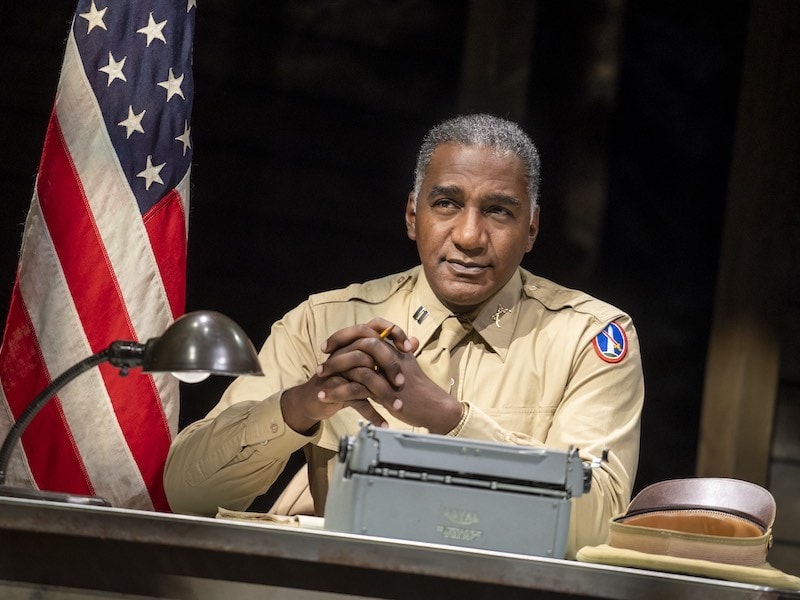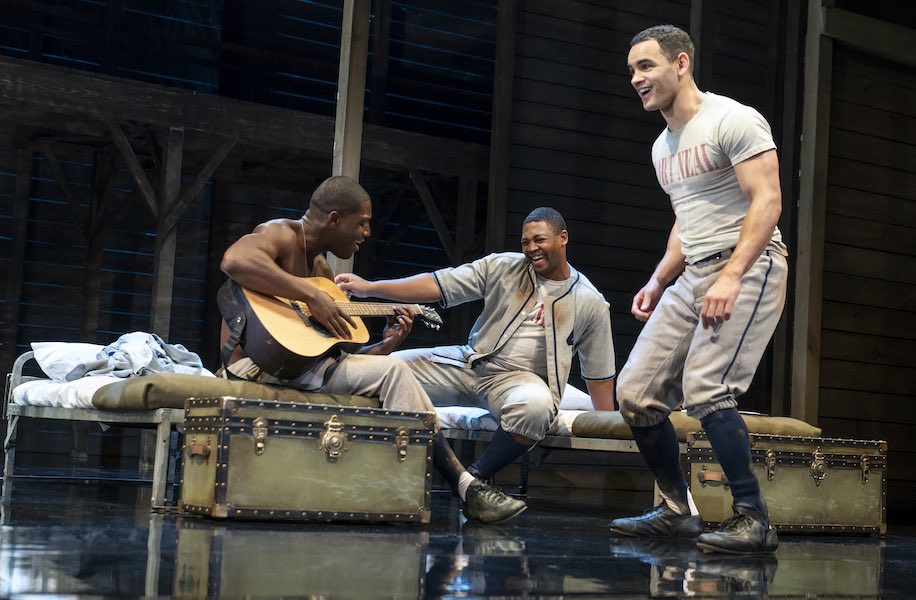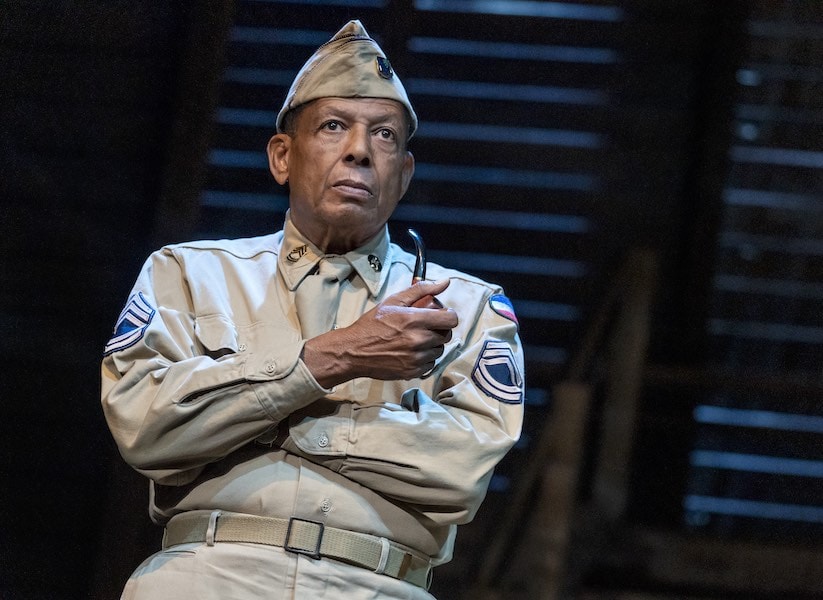Layers of racism, baked into the toxic soil of the Deep South, were masterfully excavated by Charles Fuller in his 1981 Pulitzer Prize–winning drama, A Soldier’s Play. A revival of this searing play, directed by Kenny Leon, has begun its national tour at the Kennedy Center. Even after 40 years and countless subsequent examinations of race in America, Fuller’s absorbing and thought-provoking work still packs a punch.

A Soldier’s Play takes place in the segregated barracks of Fort Neal, Louisiana, in 1944. Captain Richard Davenport (Norm Lewis), a Black army lawyer, arrives on base to investigate the murder of Sergeant Vernon C. Waters, a Black career officer shot by an unseen assailant during the opening scenes of the play.

Davenport is greeted by Captain Charles Taylor (William Connell), a white officer who is startled to face an African American of equal rank for the first time. Strict military code dictates how the two officers must work together, but Taylor clearly warns Davenport of the perils inherent in accusing any white men of the crime.
At first, the unseen but omnipresent Ku Klux Klan is presumed by some to be responsible for the sergeant’s death. But as Davenport methodically interviews one enlisted man after another, a far more complex story spools out. As it turns out, virtually everyone had a motive for killing the tortured and torturous Waters.
The enlisted men, beautifully played by an outstanding ensemble in this production, forge camaraderie and even some humor out of their lowly status. Stuck stateside until the last years of World War II, they are assigned their unit’s most menial tasks, ones they might have been forced to carry out as members of a prison chain gang or even as enslaved servants less than a century before. Yet they infuse their existence with time-honored traditions and grace. They chant rhythmically to coordinate hard physical work. Blues melodies and locker room banter animate the barracks. They add jivey steps to their military marches with a wink and a nod to one another. Most of all, they find a measure of prestige and joy as members of a winning baseball team. Even their white officers are impressed. If the team keeps up their success, they may have the opportunity to play an exhibition game with the Yankees.
The esteemed Norm Lewis as Davenport exhibits magisterial composure and restraint in his single-minded search for the truth. We might like to know more about his backstory. After all, Davenport has risen in the army against what must have been nearly impossible odds. But Fuller positions him more as a catalyst than an active participant in the play’s complex messaging.
The real emphasis stays on the late Sergeant Waters (Eugene Lee), whose self-hatred manifests in the brilliantly etched flashbacks that explore how and why he grew to disdain and mistreat the men under his command. The flashbacks, stemming from the testimony that Davenport teases out of each soldier, simultaneously give us insights into the personalities and aspirations of each of the men under Waters’ command. They are a diverse group, and their individuality debunks the concept of Southern Black stereotypes.

Lee gives a remarkable performance as a northern, educated Black veteran of World War I who despises southern Blacks, blaming their unsophisticated ways as a drag on progress toward racial equality. He has special animus for C.J. Memphis (Sheldon D. Brown), a gifted musician whose gentle grin and rural ways make him unbearable to the sergeant. Only after Waters’ unspeakable treatment of Memphis results in tragedy does the sergeant begin to realize the harm he’s done to other Black recruits. His final, drunken words, “They still hate you,” underscore his belated understanding that despite his twisted personal crusade to uplift the race, African Americans remain disadvantaged by those in power.
Derek McLane’s simple yet highly effective stage design ushers us into the stark barracks framed by a rough wooden enclosure. Clearly, these men are provided with the bare minimum of shelter, a reflection of their status in the still-segregated armed forces. Allen Lee Hughes’ lighting design enhances the drama, literally bringing us back and forth from murky, mysterious darkness into light. Subtle variations in the lighting palette between the softness of the flashback scenes into the clinical investigations metaphorically shed light on the events that led to Waters’ murder.
The continued emphasis on past events, while hugely compelling, does to some degree tamp down the dramatic effects of the present story. Even after Davenport’s dogged interrogations, the denouement seems a bit rushed and anticlimactic. Nonetheless, Fuller’s story remains immensely relevant. His vivid characters exude a charisma and a life force that transcend time.
Running time: Approximately one hour 50 minutes, with one 15-minute intermission.
A Soldier’s Play plays through January 8, 2023, in the Eisenhower Theater at the John F. Kennedy Center for the Performing Arts, 2700 F Street NW, Washington, DC. Tickets ($45– $135) are available at the box office, online, or by calling (202) 467-4600 or (800) 444-1324.
The program for A Soldier’s Play is online here.
COVID Safety: Masks are optional in all Kennedy Center spaces for visitors and staff. If you prefer to wear a mask, you are welcome to do so. Kennedy Center’s COVID Safety Plan is here.
SEE ALSO:
From AV nerd to illustrious lighting designer: a Q&A with Allen Lee Hughes (interview with the Tony-nominated lighting designer of A Soldier’s Play)




